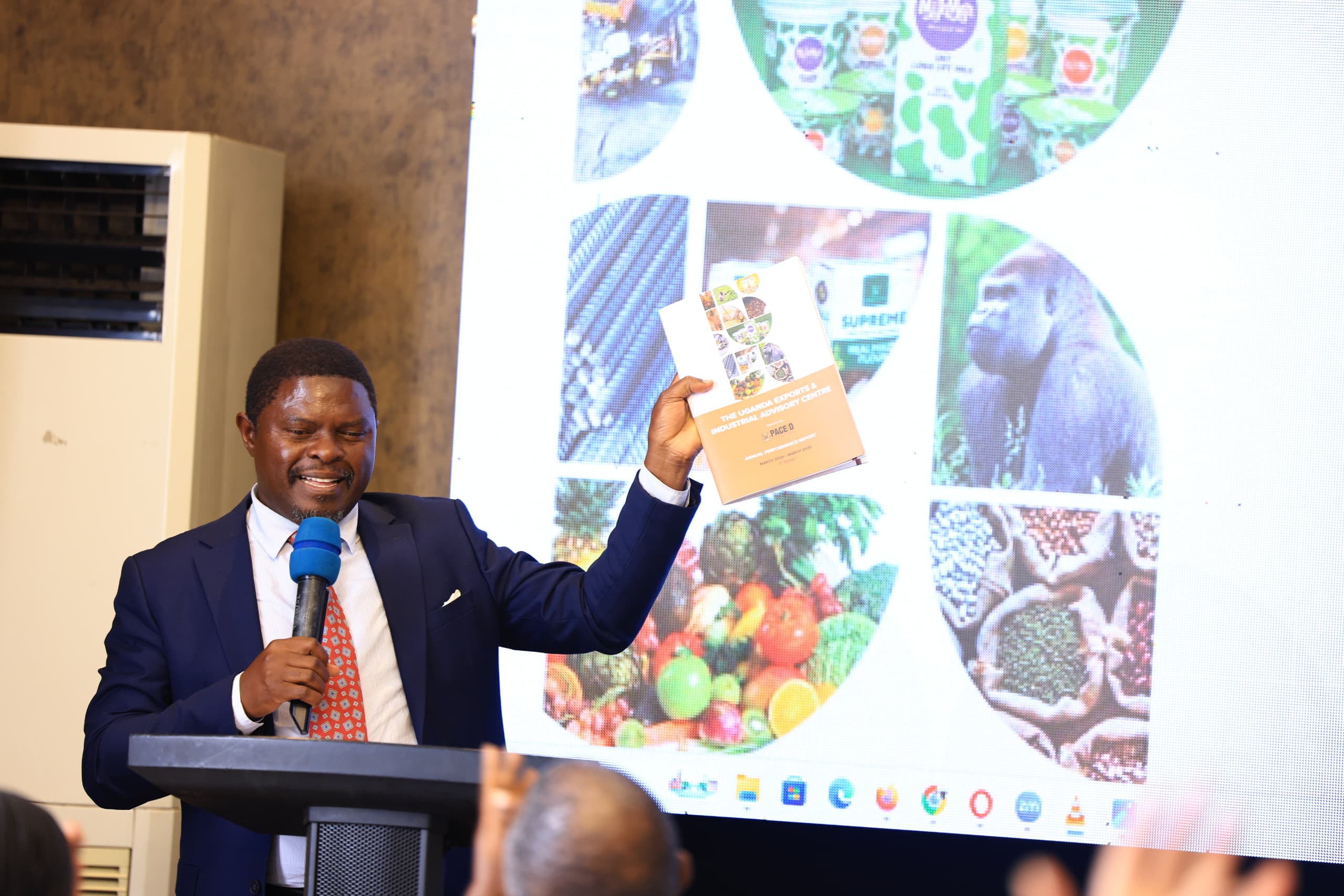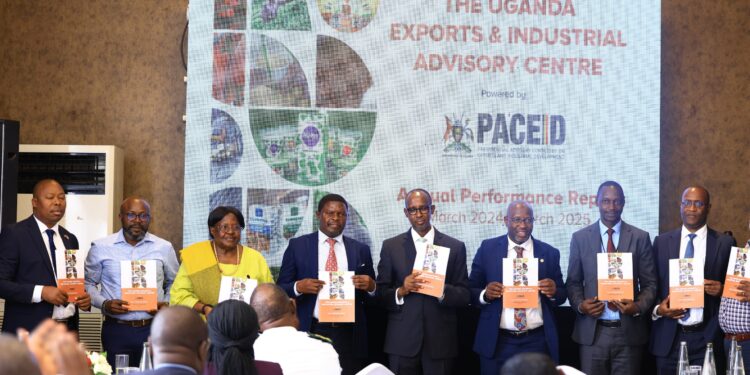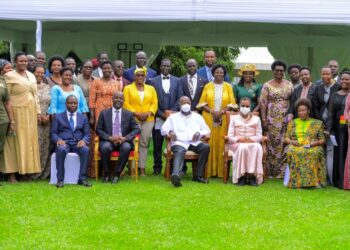The Minister of Presidency, Hon. Babirye Milly Babalanda has stressed the critical need for Ugandan producers to prioritise market demands from the outset to ensure success in the global arena.
Her message was delivered yesterday by the Senior Presidential Advisor- Research, Dr. Dan Ssekiboobo, at the launch of the Presidential Advisory Committee on Exports and Industrial Development (PACEID) Performance Report for March 2024 to March 2025, where she commended PACEID’s “pioneering efforts” in driving Uganda’s exports.
“Many producers in Uganda do not start with markets in mind, and this is how we have had a high failure rate of indigenous producers,” Dr. Ssekiboobo quoted the Minister. This blunt assessment highlighted a key obstacle hindering the growth of Uganda’s export sector.
Despite this challenge, the Minister acknowledged the significant strides made by PACEID.
“I’m also aware of your pioneering efforts with Uganda connecting hub, which is driving Uganda’s exports, especially coffee, Uganda, sugar, Tooke,” she said, recognising the tangible impact of PACEID’s initiatives.
The report also highlighted PACEID’s success in navigating complex international markets, fostering trade relationships with businesses from various countries.
“Your effort in understanding difficult markets is yielding, especially in the trade business in Uganda, by the businesses from the UK, from Serbia, from the USA and South Africa,” the Minister noted.
To further capitalise on these gains, she emphasised the need to “Emphasise further our exporter capacity by building databases of buyers interested in buying from Uganda.”
Looking to the future, the Minister challenged PACEID to explore new avenues for growth, specifically proposing mentorship engagements.

“I wish though to challenge you, to challenge all of us, to think about one additional opportunity that may have skipped our deliberations, and that is how can proceed, facilitate mentorship engagements of talent, of skill and innovation between our Ugandan graduates, our Ugandan investors, and their peers in the diaspora.”
She emphasized the potential of such initiatives for “knowledge management and transfer… employment creation, but also excellent for product development, and indeed, it’s critical for the export sector.”
Mr Odrek Rwabwogo, the chairman of PACEID called upon all Ugandans dealing in the export industry to embrace the idea of working together as a country and urged the ministry to come up with a common and proper language that will encompass all contributors in the export ecosystem.
“As we are moving around, we must come up with a common understanding across the whole country so that on is left behind. The second lesson I want to share with you is that we try to cover much, and now I realise that it’s not what you cover in life, it’s what you discover along the way, the lessons you discover are very, very important. So we now know we need to build a collective vision as a people, as a country, as institutions on this matter of exports, because entrepreneurs are the ones who produce products and create jobs if we don’t. We shall have a problem,” he said.
Rwabwogo also added, “ How do you reverse it? You reverse it if you have a collective vision to ensure that you coordinate. So for me, coordination has been the biggest planning doesn’t matter how good you are. You are nothing if you’re alone. If we do not coordinate actions, we are going nowhere, we must unite for the better of this country. No country will ever develop outside trade.”
Meanwhile, the PACEID report released showed that Uganda’s export sector is experiencing significant growth, fueled by the strategic government. PACEID is registered approximately. USD 460 million in orders in 2024 and has profiled 243 Ugandan exporters onto the PACEID Database. Five Ugandan products, including coffee, chocolate, and dried fruits, have passed a market test in Tokyo, Japan, indicating strong import demand.
According to the Rwabwogo, Uganda now aims to increase exports to Japan, particularly in high-value agricultural products like coffee, flowers, and cocoa. Uganda Connect Trade Hubs have also been established in Serbia, the DRC, and Entebbe.
Do you have a story in your community or an opinion to share with us: Email us at editorial@watchdoguganda.com














